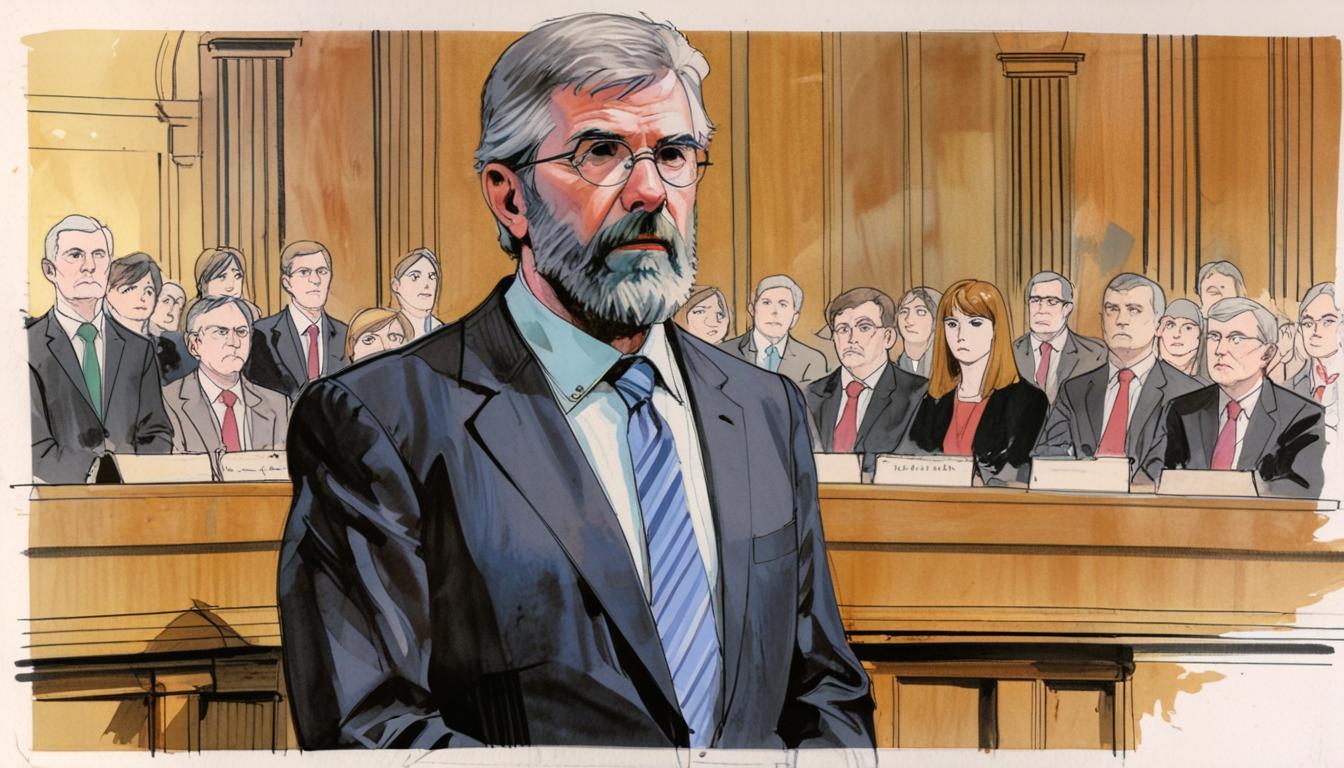In a troubling libel trial, Gerry Adams, the former leader of Sinn Féin, has taken the stand in the High Court in Dublin to challenge severe allegations propagated by the BBC. Adams is suing the broadcaster for claiming he sanctioned the murder of former Sinn Féin official Denis Donaldson, killed in 2006 shortly after revealing he had acted as an informant for British intelligence. He vehemently denies these accusations, which he labels a “grievous smear” that sheds unfounded doubt on his reputation as a peacemaker.
The trial has attracted significant scrutiny, partly due to testimony from Bruce Morrison, a former US congressman instrumental in the peace process under President Bill Clinton. Testifying via video link, Morrison described Adams as a figure known for his "seriousness and dependability," highlighting his positive reception during visits to the US amidst the Northern Ireland conflict. While Morrison’s perspective offers a glimpse of Adams' purported evolution from a controversial figure to a respected leader, it fails to address the foundational issues regarding the lingering influence of violence in the political landscape.
The BBC's defense is steeped in the turbulent history of Sinn Féin and the Provisional IRA, as they aim to establish that Adams has consistently refrained from condemning violence and its associated informers. This troubling narrative reinforces their argument that their reporting serves the public interest, raising questions about the moral obligation of media in representing complex historical truths. Although Morrison acknowledged he could not verify the various allegations against Adams, his portrayal of a man focused on the peace process underscores the conflicting narratives that pervade this trial.
As Adams seeks further information from the BBC, he claims the broadcaster's remarks have not just tarnished his image but undermined his endeavors aimed at reconciliation within Northern Ireland. The ongoing proceedings challenge the court to dissect not just the allegations against Adams, but also to scrutinize the broader implications of how media representation shapes historical accountability, particularly in the context of a region struggling with its past.
Observers of the trial are acutely aware of the potential ramifications of the tribunal's judgement on the broader legacy of the peace process. With Adams’ established role in pursuing resolution to decades of turmoil, this case transcends personal reputation; it underscores the enduring complexities within a political fabric still grappling with the consequences of its divisive history. As the case progresses, the unfolding narrative promises to unearth more about the intricate relations between peace, politics, and media representation in Northern Ireland, further complicating the discourse as the country navigates its challenging past.
Source: Noah Wire Services
